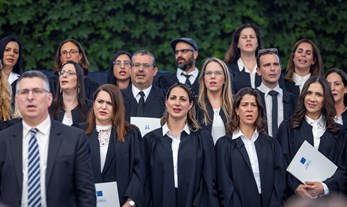


The Israel Democracy Institute criticizes decision to reduce search committees for public service employees from 5 to 3 and says discussions of allowing additional political appointees ‘will harm the professional ethos of the public service’
IDI President Yohanan Plesner said of this latest development: “While one hand in the government is taking significant steps to diminish regulation and improve human resources in the public service, the other hand is harming these efforts.

Surveys: 50 Years Since the Six-Day War
The Guttman Center for Public Opinion and Policy Research (then the Guttman Center) carried out a series of surveys just before, during and after the war.
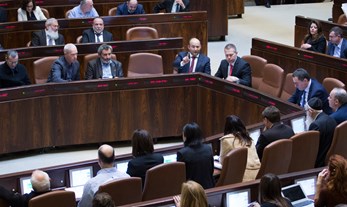
Knesset Proposal to Impose Sanctions on Non-Attendance at Parliamentary Committee Meetings:
IDI scholar recommends adopting a proposed amendment to Basic Law: The Knesset, aimed at penalizing Knesset committee members who are invited to testify or submit information but do not comply.
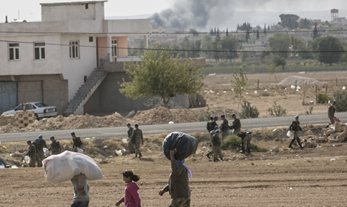
IDI Ahead of Deliberations on Removing Tax Benefits from Human Rights Organizations:
‘The bill will harm nonprofit organizations that lend a helping hand to humanitarian purposes like assisting Syrian children’
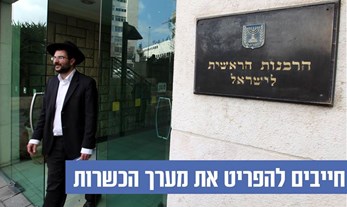
Time to Privatize the Kosher Certification System
In order to grant better, cheaper and friendlier kosher certification, we must privatize the kosher certification system, break up the Chief Rabbinate’s monopoly, and rely on the unwavering market of 70 percent of Israeli Jews in the state who eat kosher food.

The Israel Democracy Institute Ahead of Sunday’s Deliberations on the Amendment to the Bill on Public Broadcasting:
Ahead of the expected debate on the amendment to the public broadcasting law that is expected to take place on Sunday, IDI scholars resent a policy statement to legislators calling on them to stop this “unprofessional and shameful” legislative process and to enable the Israeli Public Broadcasting Corporation to go on air.

How's It Going?
80% of Israelis are proud to be Israeli; 71% are optimistic about Israel’s future; and 38% see social gaps as a major challenge
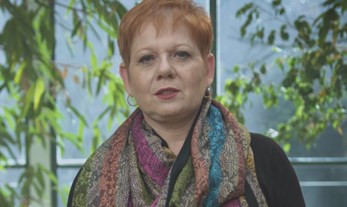
The State of Israeli Democracy: How Do Israelis Feel About Israel?
Those who get their information about Israel from the outside, might think the situation in Israel is not so great. But inside Israel, citizens are fairly proud, unified and optimistic.

In Advance of Knesset vote on Israel Broadcasting Corporation, IDI calls on Ministers and MKs:
In preparation for the Knesset vote on Tuesday on the fate of the Israel Broadcasting Corporation (IBC), leaders at the Israel Democracy Institute (IDI) are calling on ministers to vote against the memorandum so as not to participate “in this campaign of revenge and inappropriate personal legislation.”
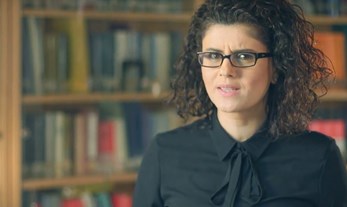
Equal Opportunity for Israeli Arabs
Written By: Dr. Nasreen Haddad Haj-Yahya
Recent findings by the Central Bureau of Statistics on the Israeli labor market reveal that 80% of the country's Arab citizens are employed in jobs with difficult physical conditions. Watch a Research Reel about the NEET phenomenon among Israel’s Arabs.
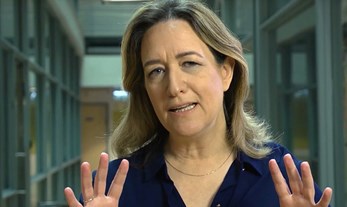
Senior Israeli Reporters Discuss the Need for a Free and Independent Press
Especially now, it is important to remember: There is no watchdog that is more important, that barks louder or is more effective at safeguarding Israeli democracy.

IDI Scholar on Supreme Court Decision to Allow Supermarkets and Entertainment Establishments to Operate on Shabbat in Tel Aviv
“Instead of devising agreements through consensus on the matter of ‘resting on Shabbat’ as we do on other topics, we have a state of legal and procedural chaos,” explained Dr. Shuki Friedman. “It’s a situation of each man for himself.”
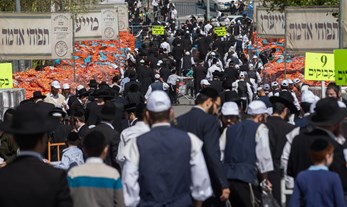
IDI's Malach: 'Kahlon Net Family Plan Could Give a Boost to Haredi Middle Class, Too'
Finance Minister Moshe Kahlon’s Net Family Plan could give a boost to the haredi middle class, which has been developing over the last several years, by increasing the incentive for haredim to seek a higher education and for both parents to work.

IDI Scholars: 'Gender-Separate Classrooms Could Enable More Ultra-Orthodox Students to Attain Higher Education Degrees'
In the coming weeks, members of the Council of Higher Education will vote on expanding gender-separated classrooms for ultra-Orthodox on academic campuses.
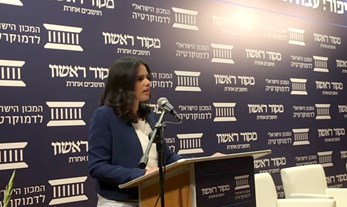
Justice Minister Ayelet Shaked: 'Legislation is like medicine'
At joint Israel Democracy Institute-Makor Rishon conference, ministers also addressed chemical weapons tragedy in Syria.

If Elections Were Held Tomorrow, Israelis Would Select a Right-of-Center Government
Latest Peace Index: Trump’s White House invitation to Abbas not viewed as negative toward Israel; Israelis believe chances of Israeli-Syrian war low
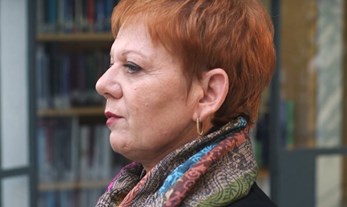
The State of Israeli Democracy: How does Israel Measure Up?
Written By: Prof. Tamar Hermann
There is a sizeable gap between the way Israelis view their political situation and the way the world assesses the Jewish state.

IDI Responds to Deal Resolving Dispute over Public Broadcasting
IDI President Yohanan Plesner and Dr. Tehilla Shwartz Altshuler call on members of Knesset, as public servants, as well as other watchdogs, to oppose the new framework.
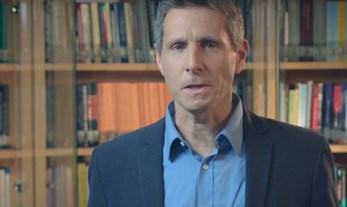
Security and Democracy in the Modern Era
Written By: Prof. Yuval Shany
Israel has been in a state of emergency since 1948. But the nature of the threat has changed over-time—from full-scale military invasions to isolated airplane hijackings, from suicide bombings to missile attacks, and most recently, cyber and lone wolf terrorism.
These ever-evolving threats necessitate new responses and strategies.

Privacy Matters in the Digital Age
Priavcy is a requirement for the proper functioning of any democratic society.

10 Past Ministers Come Out Against Changes to Public Broadcasting Law
Ministers say the current law, which separates public broadcasting from politics, is good and sound.

Israelis: Trump Will Allow Construction in the Territories
Latest Peace Index shows majority of Jewish Israelis think Netanyahu’s performance is not very good.
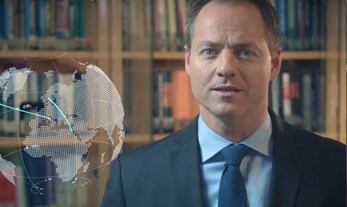
Ensuring a Vibrant Democracy
Written By: Yohanan Plesner
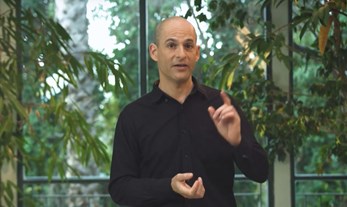
Who are Israel's Haredim?
Written By: Dr. Gilad Malach
New statistics shed light on a population that was once hidden behind "walls of holiness." Today, those walls are beginning to break.
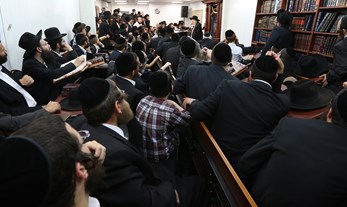
Ultra-Orthodox Employment Levels Stop Increasing
The percentage of ultra-Orthodox men who work stagnated in 2016 for the first time after a consistent upturn over the past several years, according to a new report by the Central Bureau of Statistics.

IDI Ahead of the Vote on the V-15 Bill:
‘The bill sets an extremist and dim precedent, which casts a shadow of harsh limitations on freedom of expression’
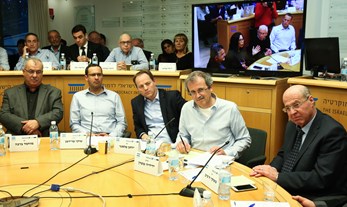
Arab Political Leadership in Israel
MK Dr. Benny Begin: "Before finalizing the five-year plan for the Arab community, 40 to 50 meetings were held between government representatives and Arab Knesset members."

Dr. Shuki Friedman: 'New Kashrut Model Must Put an End to Chief Rabbinate's Monopoly'
Dr. Shuki Friedman responds to the Supreme Court discussion Tuesday on the Chief Rabbinate’s monopoly on kosher certification.

50% of Jewish public Hesitant to Expand Settlement Construction, Even with Trump at Helm
In addition to questions about building in or annexing parts of Judea and Samaria, the Peace Index looked at aspects of the investigations of Prime Minister Benjamin Netanyahu, including trust in the police and in the attorney-general. In light of what has been revealed about conversations between Netanyahu and Yedioth Ahronoth publisher Arnon Mozes, the Peace Index looked at the public’s attitude toward Israeli media.


